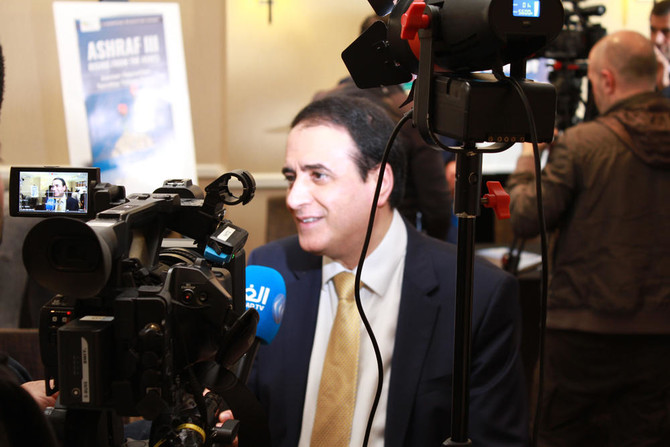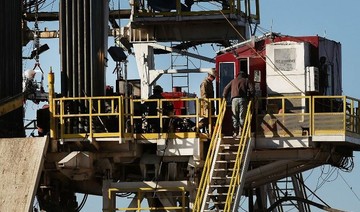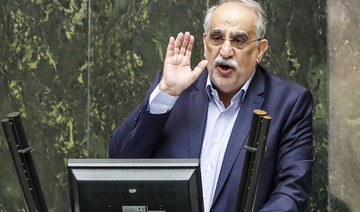LONDON: Western countries must fully adhere to US sanctions on Iran and punish regime figures involved in terrorism to prevent “domestic repression,” a prominent opposition figure has said.
President Donald Trump last year pulled the US out of the 2015 nuclear deal with Iran, imposing tough new sanctions on Tehran. But several European states have set up mechanisms designed to avoid the sanctions and keep the nuclear deal afloat.
Hossein Abedini, of the foreign affairs committee of the National Council of Resistance of Iran (NCRI), said Western powers need to step up and fully adhere to the US sanctions to stem the suffering of the Iranian people.
“The EU and the international community must join the US in imposing sanctions on Tehran’s oil and gas exports, as well as its ballistic missile program, to prevent its domestic repression and destabilizing activities in the Middle East,” he said.
“The Iranian people and resistance do not want this regime to have any bullets, or sell any barrel of oil, or spend a single dollar of the Iranian nation’s wealth on suppression and terrorism.”
Iran’s Ministry of Intelligence and Security and Revolutionary Guard Corps, along with individuals “engaged in acts of terrorism” should be designated by the EU, Abedini added.
“It is time for the EU to listen to the people of Iran and join the US’ policy of putting maximum pressure on the regime,” he said.
“(The international community must) recognize the rights of the Iranian people to resist and overthrow the religious dictatorship and establish a democratic government.
“This is part of an international campaign throughout Europe by the Iranian resistance to show the real nature of the Iranian regime, which is on a slippery slope toward its demise.”
Since the end of 2017 the Iranian regime has resorted to terrorism against the opposition, Abedini said at a press conference in London.
“High-ranking figures, including ambassadors and foreign ministry and intelligence officials, have been involved in terrorist plots against the resistance movement,” Abedini told Arab News.
Struan Stevenson, the coordinator of the Campaign for Iran Change (CiC) and former Scottish Conservative MEP, was also critical of the EU move to sidestep the sanctions.
“How is it possible that the British, German and French governments are still seeking ways of bypassing sanctions with the Americans so that we can continue in some way to trade with this evil fascist dictatorship,” he said.
“It is very strange that Britain seems to want to trade with this evil regime at the same time as we blacklist Hezbollah, which we know the (Iranian) regime sponsors.”
The British government last week designated Hezbollah’s political wing a terrorist organization, amid a US push to isolate Iran and its proxies.
Iran “loves to fight wars, they are doing this in Syria, as well as in Yemen with the Houthis and in Iraq with the Shi’ite militias. Proxy wars are their favorite mechanism of spreading the Islamic revolution,” Stevenson told Arab News.
“Saudi Arabia seems to be the only country in the Middle East that is prepared to stand up on behalf of the legitimate government of Yemen against the Houthis and their sponsors from Tehran,” he added.
“The situation is not going to be resolved until we can achieve the ousting of the Iranians from Yemen.”
The UK government must adopt a firm policy on Iran based on supporting the Iranian people and their legitimate resistance movement, said a former British supreme court justice.
Lord Clarke of Hampstead, Labour member of the UK House of Lords, pointed to a recent report by Amnesty International which called 2018 “a year of shame” for Iran. The report said that more than 7,000 dissidents were arrested last year in a sweeping crackdown.
“(This) shows that the UK government must go beyond verbal condemnations to take the lead at the UN to secure measures that will hold the regime to account for these atrocities,” Lord Clarke said.























